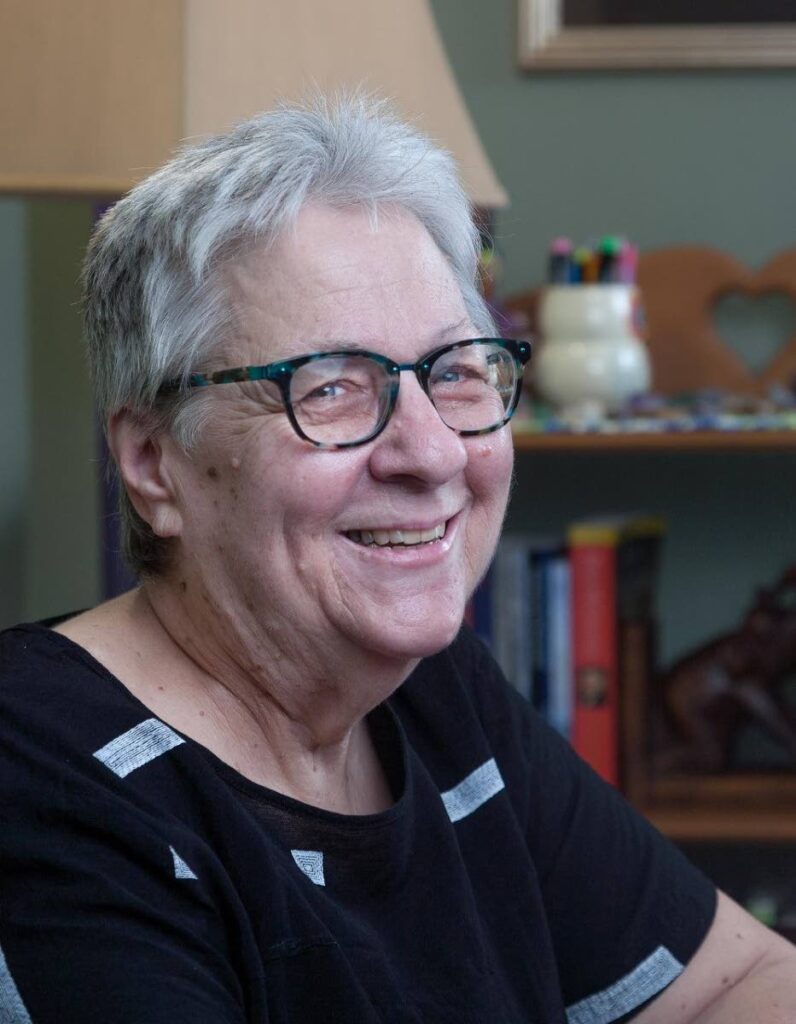Obstacle course that's prison work

Debbie Jacob
NOT A DAY goes by when I don’t hear someone say, “I give up on this country.” I have moments too when I wonder aloud, “What have I really accomplished in the fight against crime?”
Those who know of my work – plus a grand total of two prison officers and three former prison commissioners – say, “You made a difference in some people’s lives with the programmes you ran: barbering, PVC furniture making and decorative tiling; your CXC English, English literature and Caribbean history classes. You got inmates to read. You teamed up with prisons for those debating competitions so inmates had a voice and the country could hear inmates’ points of view on important issues.” With the help of Children’s Ark, you started a library in Port of Spain Prison.”
I provided prison libraries with donated books during the pandemic, but inmates’ families called me and said their relatives in prison weren’t getting books to read. Prison work is a lot like running an obstacle course. I lost invaluable support when Wayne Jackson, the superintendent of the Maximum Security Prison (MSP), was assassinated and Noel Philip, former superintendent of Remand Prison, died in an accident while fishing.
Looking back, I wonder, “Would I have started my NGO, The Wishing for Wings Foundation, if I would have known how needlessly difficult this work would be? It appears that the prison system has no succession plan for the revolving door of “acting” commissioners. Any one of them can feel free to marginalise civilians or NGO programmes no matter how good or successful they are.
Once upon a time, the prison commissioners office was open to all the stakeholders who worked in prisons, but I have not spoken to a prison commissioner since Gerard Wilson retired.
Former prison commissioner Dennis Pulchan turned down my programme requests especially tailored for the covid19 pandemic by sending letters to me via registered mail. I wanted to do a short-story class with handouts that could be distributed in the cells and zoom debates with foreign prisons. No luck.
I got scholarships for four inmates to take a criminology class in a London university that could be used as credit toward degrees in criminology from the University of the West Indies (UWI). Pulchan rejected that opportunity. A programme officer conveyed his message that he didn’t believe inmates should study criminology.
During the pandemic one brave prison officer teamed up with me and with the help of the NGO SEWA and Gary Aboud we brought 30,000 masks and cloth to make masks for inmates. Many people in this country rallied behind me to donate bleach, hand sanitiser, essential toiletries, and anything this officer needed to fight covid19 in prison.
Acting Commissioner Deopersad Ramoutar has never communicated with me. In a Newsday story dated February 26, Ramoutar said he has dozens of requests – including mine – on his desk and under review. These requests date back to January of this year and none have been approved. I can’t understand how prisons can marginalise free programmes from an NGO that has existed in prisons for years.
A simple solution would be for the Ministry of National Security to institute a directive that when acting commissioners pass through that revolving door they can’t just get rid of existing programmes without a valid reason or a meaningful evaluation of the programmes’ worth.
Does anyone in government evaluate acting prison commissioners or do we all just take their word about how they are running prisons? Does anyone gauge the morale of prison officers or do we just assume that all commissioners motivate their staff? Does the Government want NGOs and civilians to assist in this fight against crime?
In over a decade of prison work the issue has never been the inmates or the lack of public support. The issue is inconsistency in leadership and the freedom any prison commissioner has to run a prison according to his whims and fancies rather than run prisons as an institution.
In those fleeting moments when I think about giving up, I remember the grants, public and company support I have received, and the extraordinary prison commissioners I have served under – Sterling Stewart, Gerard Wilson and Dane Clarke.
Inmates now in the free world tell me how the prison debates gave them confidence and a voice and how they still read books or use the skills they learned from me. It’s too bad the battle against crime often boils down to petty bureaucracy that often steps in our way.


Comments
"Obstacle course that's prison work"